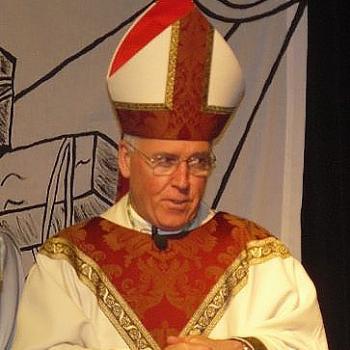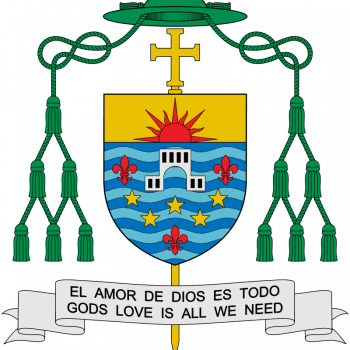In his diocesan paper, Bishop Robert W. Finn of Kansas City-St. Joseph raises questions about NCR:
I am very proud of the work of our diocesan Catholic paper, The Catholic Key, our writers, and all involved with its production for the conscientious manner in which they use the paper to teach Catholic doctrine, to provide trustworthy reflections on issues that take place in our culture, and to provide stories of apostolic life and work – particularly from our local diocese – that inspire us to live our Catholic faith more fully.
Similarly, the apostolate of Catholic Radio has blossomed locally. KEXS, 1090 AM, Catholic radio has helped Catholics to know and live their faith. Catholic radio is enjoyed by non-Catholics and has been the cause of many coming to the Faith and entering the Church.
In a different way, I am sorry to say, my attention has been drawn once again to the National Catholic Reporter, a newspaper with headquarters in this Diocese. I have received letters and other complaints about NCR from the beginning of my time here. In the last months I have been deluged with emails and other correspondence from Catholics concerned about the editorial stances of the Reporter: officially condemning Church teaching on the ordination of women, insistent undermining of Church teaching on artificial contraception and sexual morality in general, lionizing dissident theologies while rejecting established Magisterial teaching, and a litany of other issues.
My predecessor bishops have taken different approaches to the challenge. Bishop Charles Helmsing in October of 1968 issued a condemnation of the National Catholic Reporter and asked the publishers to remove the name “Catholic” from their title – to no avail. From my perspective, NCR’s positions against authentic Church teaching and leadership have not changed trajectory in the intervening decades.
When early in my tenure I requested that the paper submit their bona fides as a Catholic media outlet in accord with the expectations of Church law, they declined to participate indicating that they considered themselves an “independent newspaper which commented on ‘things Catholic.’” At other times, correspondence has seemed to reach a dead end.
In light of the number of recent expressions of concern, I have a responsibility as the local bishop to instruct the Faithful about the problematic nature of this media source which bears the name “Catholic.” While I remain open to substantive and respectful discussion with the legitimate representatives of NCR, I find that my ability to influence theNational Catholic Reporter toward fidelity to the Church seems limited to the supernatural level. For this we pray: St. Francis DeSales, intercede for us.
UPDATE: At least one observer thinks Finn was too kind:
Finn’s remarks re the NCRep focus on their use of the name “Catholic” in their title and it is here that he goes too gently, I think, against their continued use of that title. Finn writes: In light of the number of recent expressions of concern, I have a responsibility as the local bishop to instruct the Faithful about the problematic nature of this media source which bears the name “Catholic.” While I remain open to substantive and respectful discussion with the legitimate representatives of NCR, I find that my ability to influence the National Catholic Reporter toward fidelity to the Church seems limited to the supernatural level.
First, I would have expressly argued that NCRep’s use of the word “Catholic” in their title is canonically illicit per Canons 216 and 300. There is simply zero question about this assertion, for they “claim the name Catholic without the consent of the competent ecclesiastical authority.” Second, once one is shown to be acting illegally under canon law, a number of canonical responses to illicit activity come into play including precepts, the invocation of penal law, and certain sacramental consequences for organizational leadership. Not to mention, of course, those supernatural tools that a prayerful bishop thinks of first in times of trial. Thus, my opinion that Finn is being too kind; at the very least, there are more arrows in his quiver than a quick read of his essay lets on.











